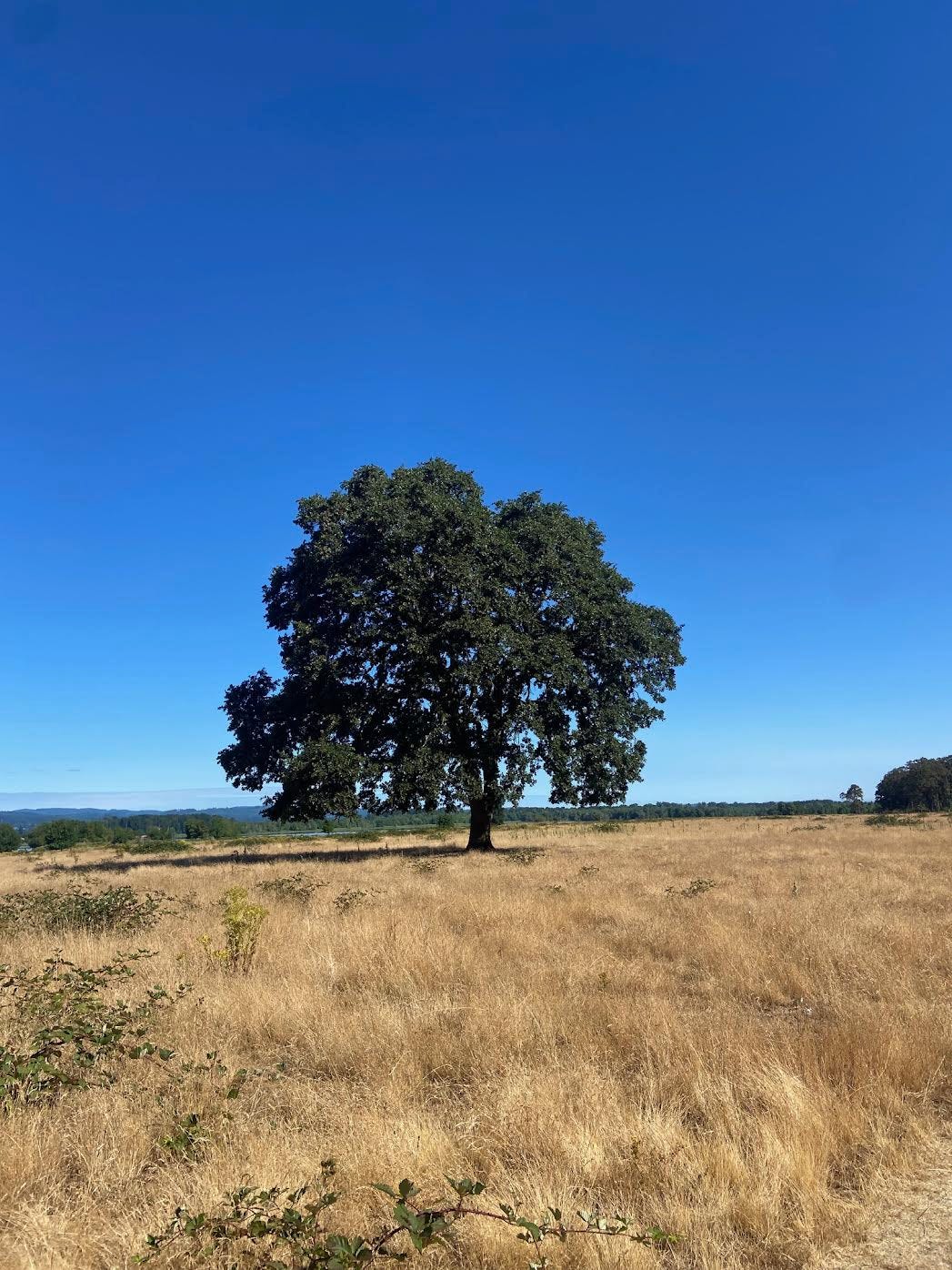The Lean Edit
Hi friends.
Greetings from Portland where I am eating frozen blueberries and it is the first grey day in nearly two weeks. It has been sunny and warm otherwise, and I have been happy to take long walks through these streets and nap in a backyard hammock and eat good vegetables. I had a few nice meals with friends, but in general talked to few people.
Instead, I eavesdropped and observed a lot in public. Last night I heard a couple reminisce fondly about a salad they had at a wedding a year ago. Once I heard one café worker say to another, “You know when you can tell two people should just break up already?” One morning I watched a man drop off his children to what I presumed was his ex-spouse’s house and noted the care with which he hugged one of them in particular goodbye, as if they needed a little extra attention.
I was alone but not lonely, because I had my imagination and my words to keep me company the whole time. Still, it was strange not to talk to anyone for five days in a row, and when my voice did finally surface it seemed so much deeper than I remembered. Is this what I sound like? I wondered if I were a new person now.
I do feel new at least a little bit, anyway, because wow, did I get a lot of work done here on my novel. The book feels more toned and shapelier now, even if I have some brand-new holes to fill. In the end I cut about 18,000 words and I also composed a good list of rewrites that need to be made. Progress in Portland.
It isn’t an entirely new book. You wouldn’t read it and think: I don’t recognize how it sprang forth from the other one. But it has a different focus. And I cut two characters out entirely. As I cleaned it up, I thought of what I was doing as “the lean edit.”
When I write anything about “craft” to you I always feel like I must be stating really obvious things. I didn’t get an MFA so I don’t have the language that some people do. And it’s been about 1000 years since I did my undergrad in creative writing and I honestly don’t even know much I learned in college besides how to stay alive. My best writing professor was Steve Dixon who basically told me “you’re good at this” and “make this part weirder” which is actually more helpful than it sounds when you’re starting out, but of course I can’t do that for 32,000 of you.
All this to say that what I am about to share with you is maybe all obvious shit. And it came out of just ten days of work. But maybe sometimes it’s just good to hear obvious shit.
Anyway, I made a list of things I did as I cut 18,000 words in ten days, and here they are:
Keep reading with a 7-day free trial
Subscribe to CRAFT TALK to keep reading this post and get 7 days of free access to the full post archives.

